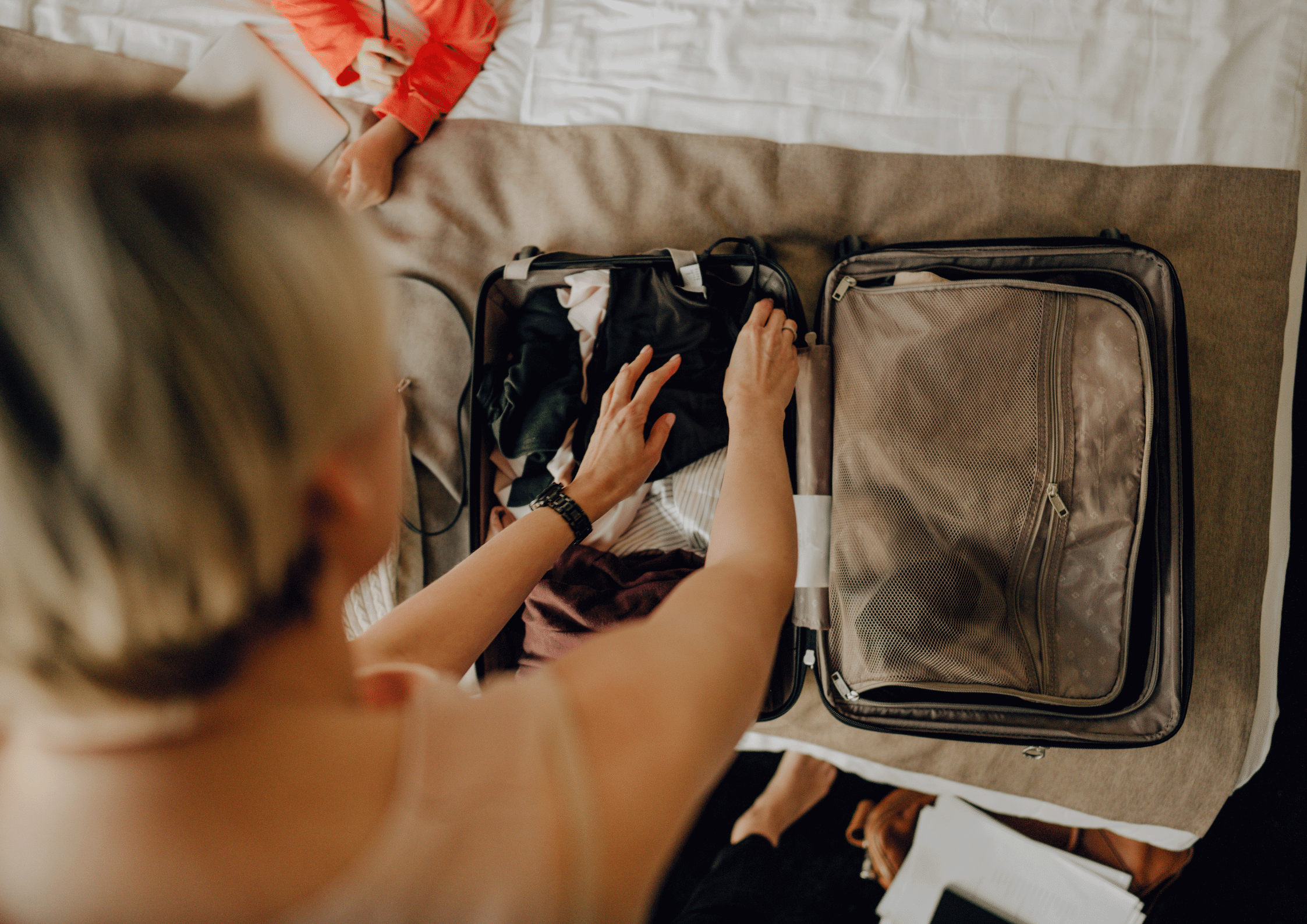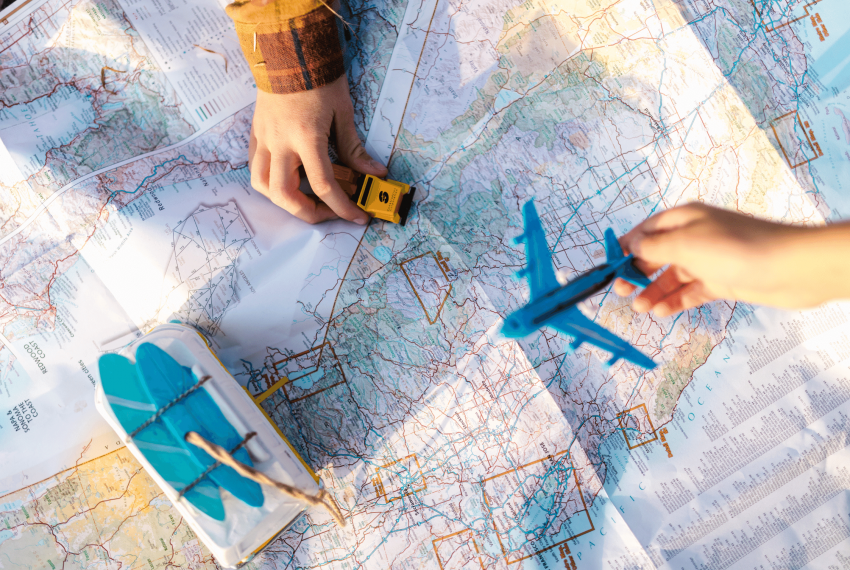Many times the idea of traveling with children can be a process that looks like a mountain. That's why it often leads us to minimize their involvement in travel planning and preparation. The Montessori method is here to show us tips for planning your next trip with the kids! The key tool in the method is not an innovative or magical toy, but the respect we give to children as capable students - and this is something we can take with us anywhere. Confidence in children and their participation in practical experiences, such as a journey from beginning to end, makes them active members of the family and the future of the world!
After all, a trip, big or small, means a change in their routine. A change that when not well planned can lead to great emotions, lack of mood or cooperation. That's why, in fact, the child's journey begins long before you leave home. This is a thought that may help us better understand the importance of children being actively involved in practical matters. Thus, having children as partners, we avoid bad feelings and refusal to participate, while at the same time we learn skills and the meaning of independence that will accompany them when they undertake the same similar tasks in the future.
First stage: planning - before the trip
Many times we keep a big trip to our children as a surprise, announcing it a while ago. Other times we are overwhelmed by obligations and while we are preparing for the trip, we forget to announce it to them early, let alone actively involve them. So we need to make sure that we have the right time and maybe start our plans a little earlier, especially if it is their first time.
A trip can be a joyous process for us, and it is. But for a child, it can come with many changes that for us are not remarkable. For example, let's say we visit a country where we have to use public transport often, such as the metro. If a child does not use it often, noise and crowds can be an issue. Or another example might be a happy visit to friends or relatives whom they will meet for the first time. If the child is accustomed to a smaller social circle and is suddenly confronted with many new and unfamiliar faces, this can be a bit stressful.
Your child's involvement as a competent student begins with taking into account their unique perspective and connecting with them before the journey even begins. The difficult times we seek to avoid often come from feeling insecure and having no control over an unknown situation. You may not be able to avoid these difficult times altogether, but connecting your child to the travel experience in advance can boost your child's awareness, sense of security, and confidence in a new experience. Some advice:
- Find out where you are going: search and find out with them how you are getting there. You can read books or watch videos from the place. Imagine how exciting it will be when they take a closer look at what you have studied
- Meet the people you will see: if you are meeting someone you will meet for the first time why not make a video call with them so that they start to get acquainted?
Remember your old travels: if it is not your first trip you definitely have photos and videos from previous experiences. Take a look with them at these memories,

What to pack with you? The big question.
One of the most important parts of a trip, perhaps the moment we understand that the trip is approaching, is the preparation of our suitcase. So give them their own suitcase to pack. Even the youngest child will be thrilled to have their own suitcase with their belongings. The purpose here is not perfection. Give them some directions where needed, but remember that children prepare a miniature suitcase every day: their school bag! They will do much better than you expect and will also get to practice. So every time they will improve.
Also, when involved in the packing process, they are more likely to want to help with shipping! It also supports their understanding of the dynamics of the journey, that is, preparing for the return home. Some tips to get you started:
- Guidance by example. Learning about packaging starts the moment you take out your own suitcase. Talk to them about the importance of the suitcase and what is important for you to take with you: "I will take the clothes I will need while we are away, my toothbrush, my glasses !!"
- Explore together. Offer them a small bag that they can carry independently (a small backpack or a rolling suitcase in size for children). Let them get acquainted with it through play and exploration on the days leading up to the trip.
- Help where needed without aiming for perfection :. In addition to the random items they are likely to pack, guide them through some functional elements of the process. Tell a simplified version of your plans to give them the framework for what they will need: “We will stay for three days! That means we have to bring four T-shirts. "Can you help me find them in your closet?"

On the road: "We are learning from the world this week".
Some of their favorite things and toys are essential to make it easy for everyone to travel to and from your destination. Of course, the most exciting experiences are not in the games that will help but in the happy and new experiences. Bring more excitement and joy to all these new experiences and get their attention more. Some tips for this stage:
- Get ready for the road. Bring items for the road that your child has never seen before. And don't forget to save a few different items for the return!
- Find tasks they can help with. From the moment you leave home, even small chores can make sense for children and give them a sense of contribution. Maybe they can pull up their own suitcase, help you measure their luggage, or play the game of finding the nearest trash can. As simple as it may seem, these small contributions increase the feeling of belonging and collaborating.
- Create places to play on the go, if needed. If you spend a lot of time in the hotel or with relatives, bring two or three of your favorite toys that you know your child is interested in. Place them in the space to remind them of toy rotation. You do not need a shelf to create an open game invitation - just a visible point.
The most important part of the trip is to have a good time. By following some of the above tips of the Montessori method you can discover how the preparation of the trip and the cooperation of the children in it become easier. You do not need to follow the tips as a rule, after all they are flexible in bringing them to your own reality.
Safe travels!
tag:Wonder Wall


